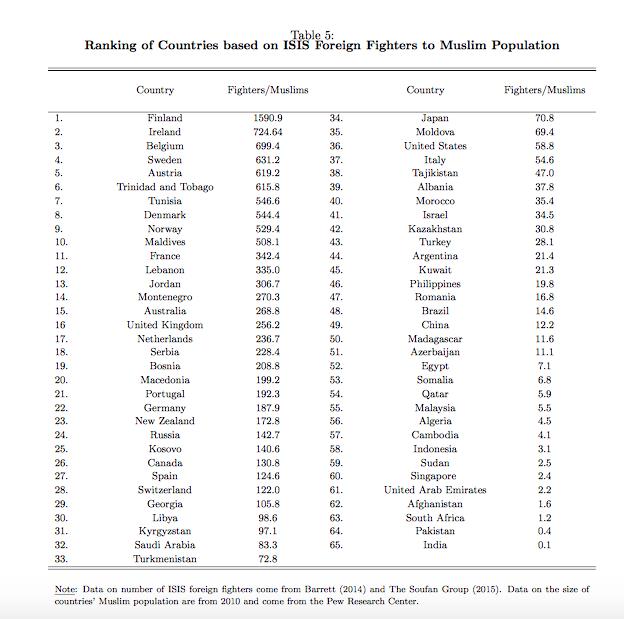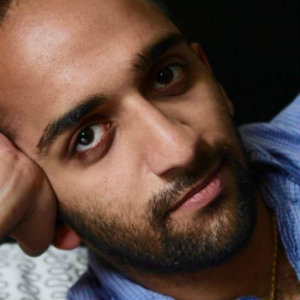Vishal Wilde FRSA suggests how reforming our education system could have the potential to reduce instances of radicalisation in schools
There is a consensus that education plays an important role in radicalisation and terrorism. Educational institutions vary but include schools, universities, private study/discussion groups in communities, online forums and more. This is an opportunity to reconsider an attractive policy option that could counter radicalisation and violent extremism: namely, education reform. School vouchers could be a particularly potent means by which to do this.
I first came across the idea of school vouchers in Milton Friedman’s Capitalism and Freedom; this would involve giving all households ‘school vouchers’ proportional to the number of the children in the household for the purpose of education. Families and children would then have several choices: to return that voucher to the state to stay in a state school (since all state schools would not require a further ‘top up’), to go to a private school that would accept that voucher as adequate payment or to use that voucher to help towards the costs of a private education and ‘top it up’ with some of their own income. There are several benefits associated with this market-inspired/market-based approach to schooling but an exposition of them is beyond the scope of this particular article. Markets and regulations permitting, there could be many new private schools that would emerge offering a greater range of prices, and catering to different demographics, neighbourhoods, preferences more generally etc. This could also enable a proliferation of Islamic private schools (akin to Christian private schools) that teach Islamic values alongside a curriculum that enables students to flourish in the 21st century. Many Muslim students may choose to attend such schools.
It cannot be disputed that many Muslims face blatant Islamophobia and racism in mainstream society. When an individual experiences racism and Islamophobia from the mainstream, they are more vulnerable to radicalisation (by forces that indoctrinate and incite hatred) since they’re experiencing neither the best of mainstream British society nor the best of Islamic values.
Only a tiny fraction of the world’s 1.6 billion Muslims commit acts of terror – the vast majority are peaceful. If more Islamic private schools were to emerge, many of their students would be in the company of the vast majority of Muslims who have been exposed to peaceful Islamic values and they would also not be simultaneously exposed to the Islamophobia and racism they face in many mainstream schools. This would also make it easier for at-risk individuals and their peers to identify corrupted teachings of Islam that contradict peaceful interpretations of doctrine. In this way, the community may find it easier to assist in routing extremism and preventing radicalisation. Of course, one might suggest that such a state of affairs would only serve to reinforce social divisiveness within the UK as a whole but, to counter this, I turn to the example of India.
The case study of India
In India, private education is affordable to and used not only by the middle and upper class but also to those from lower socioeconomic backgrounds because of the availability of a range of private schools that cater to a range of household incomes. On this and related topics, Professor James Tooley at Newcastle University has produced an influential body of research.
Many Universities and schools in India operate systems of ‘reservation’ for people from differing communities (e.g caste, religion and socioeconomic background), genders and so on (although Indian-style reservation is not what I would advocate). As such, there are many universities and schools that reserve a significant number of seats for Muslim pupils. Of course, Indian Muslims are not without problems but there are some notable facts that we can learn from. Islam is the second largest religion in India and, although they constitute 14.2% the Indian population, India still has the third-largest Muslim population globally in absolute terms (after Indonesia and Pakistan, and ahead of Bangladesh). Nevertheless, an article by Benmelech and Klor (2016) displays the following table that shows the ranking of countries by ratio of number of ISIS Foreign Fighters to the country’s Muslim Population (in millions) based on data from the Pew Research Center and The Soufan Group:

The United Kingdom is worryingly high on this list (16) versus India which ranks at the bottom (65). Although India’s education policy does not mirror the school vouchers advocated here, it is clear that Indian Muslims are not flocking to ISIS in as greater numbers as their European, Middle Eastern and African counterparts. This is merely supporting evidence that a proliferation of private schools, an increase in school choice and increased educational autonomy may not exacerbate social divisiveness.
There are other legitimate concerns regarding how this educational system may lead to less integration since there are crucial differences between the UK and India. One difference is that, whereas the majority of Indian Muslims will be Indian nationals, many Muslims in the UK are migrants. As an example, one may justifiably wonder how recent economic migrants and refugees from Somalia may fare in Islamic schools attended predominantly by British Pakistanis. There are no accurate answers to this but, to recourse to Indian education, there are several quotas in Indian institutions for Muslims from particular backgrounds (based on caste and class, for instance). Caste, class and community divisions are still problematic and potent but this is evidence that Indian Muslims from various backgrounds are educated together (with the caveat that caste, community and class differ to race).
Concluding Remarks
Some would argue that these outcomes can be achieved without school vouchers but it is desirable to have healthy competition between Special Interest Groups regarding the delivery and content of education rather than having some exercise and impose disproportionate influence on others. Although the outcomes of school vouchers are disputed by some, there is evidence from the USA that it benefits students from low-income and minority backgrounds and, if this was replicated in the UK, it would only help integration.
Our education system plays a crucial role in political socialisation and it is vital that education policy is reviewed in the fight against radicalisation, violent extremism and terrorism. This is a policy suggestion that connects seemingly disparate ideas but which would be worth exploring given the nature of radicalisation and also because our education system needs a rethink more broadly. Many solutions will be proposed that are piecemeal and short-term but the challenges are systemic and need to be addressed as such.
Vishal Wilde is an incoming Civil Service Fast Streamer and is on the list of approved parliamentary candidates for the Liberal Democrats. He is a Featured Columnist at The Market Mogul (writing on political, economic and financial topics) and he has written for think tanks such as The Cobden Centre, the Center for a Stateless Society (C4SS) and the Adam Smith Institute on a variety of topics.

Be the first to write a comment
Comments
Please login to post a comment or reply
Don't have an account? Click here to register.